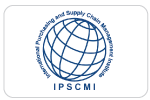

Webinars
Award-winning global training solutions
Blue Ocean is a world leader in accelerating careers and transforming organizations.
We foster empowerment by reinventing the learning experience of the workforce and redesigning businesses to be more agile.
Our 25+ years of experience in bridging the gap between infrastructure and knowledge by delivering world class learning and consulting solutions has made us a trusted partner for our B2B and B2C clients.
Workplaces and workforces are constantly defined by change and innovation. Our training solutions are indispensable when it comes to skill building and retention. At Blue Ocean, the collaborative learning methodology is a blend of high-quality research and inputs from industry experts and clients, designed to help individuals advance into new roles.
Our international award-winning services include a wide array of international certification programs, corporate training, consulting, conferences and more.

Diverse range of accredited professional certifications and courses

Learning methodology focussed on skill building and retention

Mentorship to help you deliver sustained outcomes for your organisation

Multiple modes of learning delivered through global alliances
Award-winning global training solutions
Blue Ocean is a world leader in accelerating careers and transforming organizations. We foster empowerment by reinventing the learning experience of the workforce and redesigning businesses to be more agile.
Our 25+ years of experience in bridging the gap between infrastructure and knowledge by delivering world class learning and consulting solutions has made us a trusted partner for our B2B and B2C clients. Workplaces and workforces are constantly defined by change and innovation. Our training solutions are indispensable when it comes to skill building and retention.
At Blue Ocean, the collaborative learning methodology is a blend of high-quality research and inputs from industry experts and clients, designed to help individuals advance into new roles.
Our international award-winning services include a wide array of international certification programs, corporate training, consulting, conferences and more.

Diverse range of accredited professional certifications and courses

Learning methodology focussed on skill building and retention

Mentorship to help you deliver sustained outcomes for your organisation

Multiple modes of learning delivered through global alliances
Key Figures
These numbers are a powerful reflection of our quality, commitment, and integrity.
25+
years of experience
150,000+
global alumni community
1,600+
corporate clients
25+
years of experience
150,000+
global alumni community
1,600+
corporate clients
75+
nationalities trained
500+
training programs
operating in
16+
countries
75+
nationalities trained
International Affiliations
In alignment with our vision to excel and empower, Blue Ocean offers a wide variety of training courses accredited to globally leading institutions, targeted to enhance and build capable professionals in the fields of procurement, supply chain logistics, human resources, finance and accounting, project management, quality management and aviation. Earning professional certification from these associations not only allows participants to enrich their professional knowledge and skills and become leaders in their industries but also recognize their commitment to excel.

International Affiliations
In alignment with our vision to excel and empower, Blue Ocean offers a wide variety of training courses accredited to globally leading institutions, targeted to enhance and build capable professionals in the fields of procurement, supply chain logistics, human resources, finance and accounting, project management, quality management and aviation. Earning professional certification from these associations not only allows participants to enrich their professional knowledge and skills and become leaders in their industries but also recognize their commitment to excel.
EXCELLENTTrustindex verifies that the original source of the review is Google. تجربتي جدا ممتازة و خصوصا مع منسقة التدريب الأستاذة سهى بحري اهنىء اكاديمية بلؤوشن عليها. الأستاذة سهى فعلا منجزة باحتراف متساعدة و متعاونة جدا لباقة و تعامل راقي مهارات التواصل فوق الممتازة.Trustindex verifies that the original source of the review is Google. I took CISCP CISCM CISCC courses from them. Both the faculty Mr.Sudipta and my coordinator Mr.Tabrez were excellent. I have gained a wealth of knowledge with this course.Trustindex verifies that the original source of the review is Google. My experience with the PGSA course has been extraordinary. The location, near the iconic Future Museum, was inspiring, and the instructor played a pivotal role in making the course exceptional. They were highly knowledgeable, supportive, and dedicated, which greatly enhanced my learning. I gained practical skills and industry knowledge, from passenger handling to airport operations, and this has profoundly impacted my personal growth. It improved my communication, problem-solving, and teamwork skills, and boosted my confidence in managing high-pressure situations, both professionally and personally. I would definitely recommend this course to anyone interested in pursuing a career in aviation. It offers a solid foundation and prepares you to excel in a dynamic and fast-paced environment.Trustindex verifies that the original source of the review is Google. Me take first time nice information of dutyTrustindex verifies that the original source of the review is Google. I just completed the course on CIPP. It was an amazing experience with realistic examples Thank you Engg Percy JalTrustindex verifies that the original source of the review is Google. This course CIWIM is very informative and excellent with the expert dr RajeshTrustindex verifies that the original source of the review is Google. Just completed with CIPP with Percy. Really course was amazing, Also Mr. Percy is he much professional, full loaded with information's related to procurement. Really impressed
London
Riverbank House 2, Swan Lane London EC4R 3TT
Ph: +44 7415 701800
Email : info@blueoceanacademy.uk
Dubai
B2505, Latifa Towers, Sheikh Zayed Road, Dubai, P.O. Box 116687, Dubai, UAE.
Ph: +971 4 314 8500
Email : info@blueoceanacademy.com
Riyadh
530/4, Fifth Floor, Al Akaria 2, Gate 8, Olaya, Riyadh, Saudi Arabia.
Ph: +966 112 60 5558
Email : info@blueoceanacademy.com
New Delhi
1515 Mohan Dev Building, Tolstoy Marg, Connaught Place, New Delhi-110001
Ph: +91 11 209 15150
Email: info@blueoceanacademy.in
Pune
613, 6th floor LMS Finswell, Sakore Nagar Viman Nagar Pune 411014
Ph: +91 20 493 26692
Email : info@blueoceanacademy.in
Kochi
Carnival Infopark Phase1, 2ndFloor, Infopark SEZ, Kakkanad, Kochi-682030
Ph: +91 484 4604041
Email : info@blueoceanacademy.in
Hyderabad
#3, Ground Floor, Cyber Crown, Hitech City, Madhapur, Hyderabad – 500081
Ph: +91 40 676 05533
Email : info@blueoceanacademy.in
Global Presence
London
Riverbank House 2, Swan Lane London EC4R 3TT
Ph: +44 7415 701800
Email : info@blueoceanacademy.uk
Dubai
B2505, Latifa Towers, Sheikh Zayed Road, Dubai, P.O. Box 116687, Dubai, UAE.
Ph: +971 4 314 8500
Riyadh
530/4, Fifth Floor, Al Akaria 2, Gate 8, Olaya, Riyadh, Saudi Arabia.
Ph: +966 112 60 5558
New Delhi
1515 Mohan Dev Building, Tolstoy Marg, Connaught Place, New Delhi-110001
Ph: +91 11 209 15150
Email: info@blueoceanacademy.in
Pune
613, 6th floor LMS Finswell, Sakore Nagar Viman Nagar Pune 411014
Ph: +91 20 493 26692
Email : info@blueoceanacademy.in
Kochi
Carnival Infopark Phase1, 2ndFloor, Infopark SEZ,Kakkanad, Kochi-682030
Ph: +91 484 4604041
Email : info@blueoceanacademy.in













